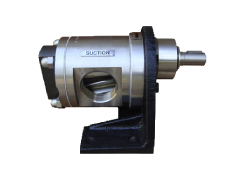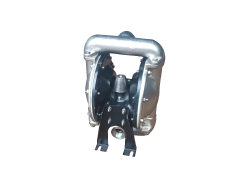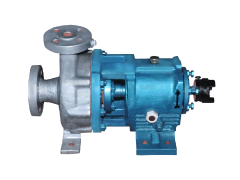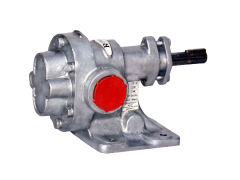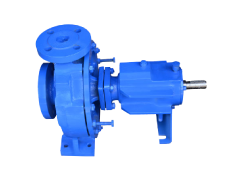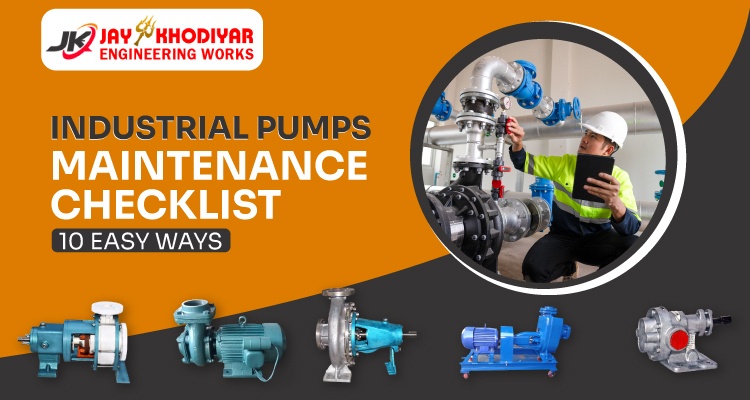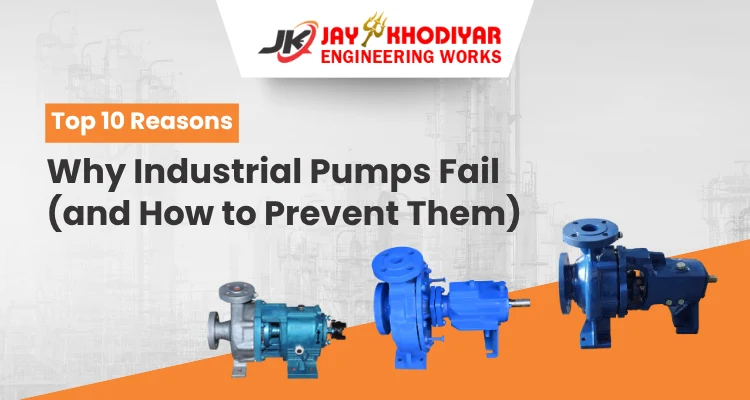
How Does A Centrifugal Pump Work? – A Quick Guide
December 12, 2023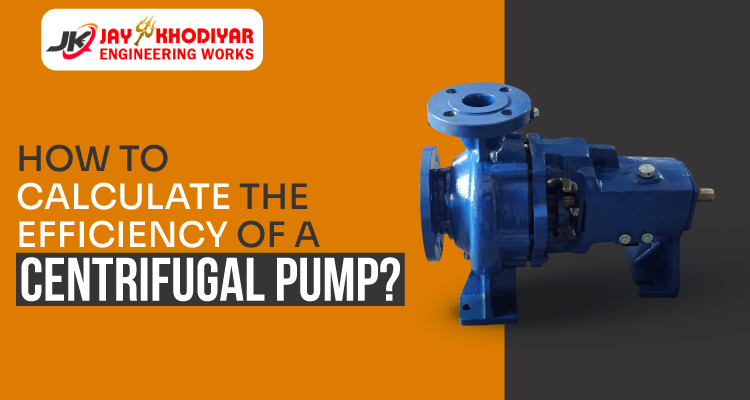
How to Calculate the Efficiency of a Centrifugal Pump?
January 17, 2024Serving in almost every industry, pumps play an integral role in the overall productive plants. The corrective operation of the pump ensures the smooth running of the overall plant and therefore it is important to look out for these pumps.
While everything is on a smooth run, it is easy to bypass the common maintenance chores. But when a pump declines to operate, it may be too late - to prevent this, keep your pumps in good working condition to save your time and money.
It requires your attention to its daily operation and corrective actions to stop the malfunctioning of the pump and is easy to do with the maintenance checklist we’d assist you with.
Types of Pump Maintenance
Choosing the right method of pump maintenance is crucial, and to identify it - only this classification can help.
-
Corrective Maintenance
Corrective maintenance is undertaken when the pump fails to operate. It is reactive pump maintenance - only done when a sudden fail, leak, stop, or trip is acknowledged in the pump. This type of pump maintenance involves repairing or replacing the disturbing parts of the pump. -
Preventive Maintenance
Preventive pump maintenance is one common approach that implies regular inspections and adjustments. It helps to prevent any potential damage or failure in the pump. It is a scheduled industrial pump maintenance checklist to allow the pumps to work with peak efficiency.
-
Condition-based Monitoring
Unlike other traditional industrial pump maintenance approaches, condition-based monitoring of industrial pumps is a maintenance strategy that uses sensors to assess and monitor the condition of industrial pumps. It uses the assessed data to develop a personalized industrial pump maintenance checklist that helps to reduce downtime and cost, this can be a costly affair for pump manufacturers.
-
Predictive Maintenance
The predictive maintenance of an industrial pump consists of monitoring the industrial pump’s heath in real-time - using some equipment and then predicting when the pump maintenance will be needed. This type of pump maintenance is proven to identify potential problems before they turn into serious ones.

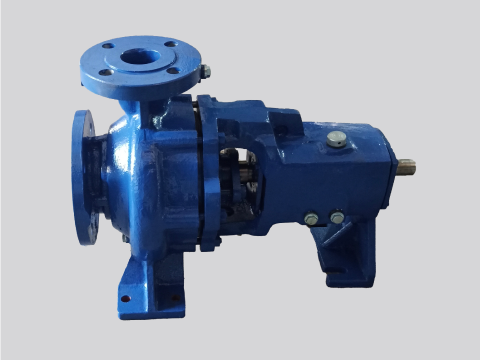
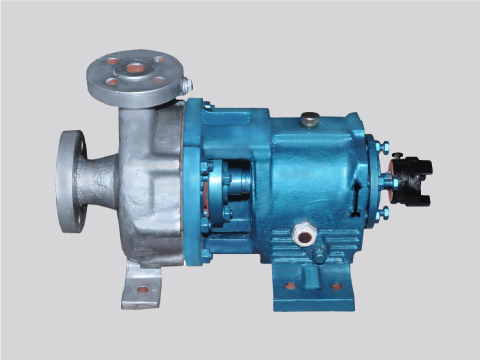

Why is it Important to Maintain Industrial Pumps?
Industrial pumps are essential for transferring slurries and liquids, maintaining pressure, and ensuring efficient operation of various processes in many industries. Therefore, pump maintenance is crucial for the following reasons:
1. Extend the Lifespan
Regular pump maintenance helps identify and address potential issues before they escalate into major breakdowns. This can significantly extend the lifespan of your pump, saving you money on replacements in the long run.
2. Safety and Efficiency
A well-maintained pump operates efficiently and safely. Damaged components or worn-out parts can lead to leaks, energy waste, and even accidents. Regular pump maintenance ensures safety and delivers maximum efficiency.
3. Reduced Downtime and Pump Failure
Unplanned downtime due to pump failure can be costly and disruptive. By proactively addressing potential problems through regular pump maintenance, you can prevent unexpected breakdowns and keep your operations running smoothly.
4. Cost Efficiency
A well-maintained pump consumes less energy and requires fewer repairs, leading to significant cost savings over time. Additionally. Extending the lifespan of your pump helps delay the need for expensive replacements.
5. Meet the Compliance Needs
Many industries have regulations regarding the operation and maintenance of industrial equipment, including industrial pumps. Regular maintenance helps ensure you comply with these regulations and avoid potential fines and penalties.
Industrial Pumps Maintenance Checklist: 10 Easy Ways
A handy pump maintenance checklist with easy ways to ensure your pumps operate optimally.
1. Maintenance Frequency
Determine the maintenance frequency. Industrial pump maintenance can be scheduled at any specific intervals, or based on the number of hours the pump runs. The frequency could be any from daily, weekly, monthly, quarterly, or annually.
2. Fluid Leaks
Visually inspect the pump around the seals, connection, and flanges of the industrial pump. Address leaks promptly to prevent damage and safety hazards.
3. Vibration and Excessive Noise
Excessive vibration and unusual noises can indicate problems with bearings, alignment, or other components. Investigate the problem-making factor and take corrective action.
4. Bearings
Check for wear and tear on bearings, ensuring proper lubrication and alignment. Replace worn-out bearings promptly to avoid further damage.
5.Lubrications
Use the proper lubricant recommended by the pump manufacturer. Lubricate bearings and other moving parts according to the recommended schedule.
6. Oil Levels
Check the oil levels of your industrial pump regularly and top up if necessary. Use the correct type of oil for the industrial pump as recommended by your pump manufacturer.
7. Seal and Shafts
Inspect seals for wear, tear, and damage, ensuring they are properly seated. Check shafts for wear, misalignment, and signs of corrosion. Replace worn-out seals and shafts to avoid leaks and damage.
8. Discharge Flow
Monitor the discharge flow rate and pressure to ensure that the pump is operating efficiently. Investigate any significant changes in flow rate or pressure and do the needful.
9. Pump Motor and Engine
Check for electrical connections, loose wiring, and any signs of overheating. Follow the maintenance recommendations given by the pump manufacturer for the specific motor or engine of your pump.
10. Cleanliness
Keep the pump and surrounding area clean to prevent debris buildup and contamination. Regularly clean filters and strainers to ensure proper fluid flow.
Prevent the Unsought!
With this big role of industrial pumps in many industrial applications, their maintenance is a matter of grandness. One other way to keep your pumps maintained with high attention is choosing the right pump manufacturer.
A responsible pump manufacturer helps you by providing sufficient qualified pumps that are easy to maintain. Jay Khodiyar Pumps Pvt. Ltd. is one leading industrial pump manufacturer in India - availing a wide range of industrial pumps to a variety of clients for diverse applications.
We help you prevent unsought damage in your pumps with higher efficiency.







